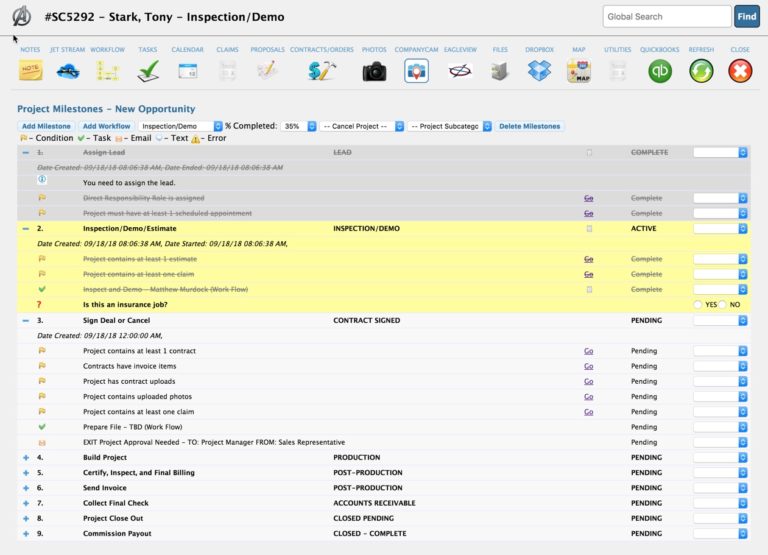7 Geospatial Tech Developments to Watch in 2022

By Cass Jacoby, RCS Reporter.
Industry leaders predict what the latest technology updates in location intelligence means for contractors in 2022.
Entering a new year is the perfect time to take stock and predict where new technologies will take us with our work. Work more efficiently and effectively by leveraging tech developments that help businesses work smarter. Read on for expert insight from Nearmap about where the latest technology is driving the industry and what to look for in 2022.
1 - 3D gets its time in the sun
2022 will see the shift towards more 3D data and content being used to collaborate, plan and finish jobs. Phil Christensen, Vice President of Digital Cities, Reality+Spatial Modeling at Bentley Systems tells NearMap that he is looking forward to seeing infrastructure digital twin implementations accelerating from pilot project to production use. Phil predicts that 2022 will be the year we utilize 3D imaging in new and exciting ways.
“We have just released our first Teams app which enables this with 3D content from Nearmap and from others,” Phil tells NearMap. “It will be exciting to see how this gets used during 2022 for engineering team meetings, virtual town hall meetings, as well as for ad-hoc meetings between those delivering new infrastructure and those they are working for and with.”
Agie Gilmore, GIS Analyst at San Francisco International Airport (SFO) echoes Phil’s excitement of 3D being used more and in new ways. “We are really looking forward to SFO GIS in 2022 with a mix of using new technologies but staying true to our fundamentals,” Agie told Nearmap. These new approaches offer an indoor 3D mesh, with a 3D campus with viewer using 3D mesh, scan data, GIS data and BIM. SFO also plans to monitor and manage underground utilities via 3D and AR, and to host an internal SFO GIS website using ArcGIS Hub with a 3D viewer.
2 – Machine learning
Machine learning will continue to help us manage time-consuming manual processes, freeing up time to focus on business-critical tasks and problem solving rather than spending time on analysis. These algorithms can uncover patterns and identify changes much faster than a human, helping businesses gain efficiency while obtaining better analytics.
The United Nations Committee of Experts on Global Geospatial Information Management (UN-GGIM) confirms this with their prediction in their report, Future trends in geospatial information management: the five to ten year vision, saying we should expect “…training models to classify objects in aerial imagery, such as buildings, roof tops, roof types, solar panels, street furniture and further data at street level, to achieve fully automatic change detection of all changes in the built and natural environment over the long-term.”
3 – Artificial intelligence
Dr. Michael Bewley, Senior Director of AI Systems, Nearmap, predicts that 2022 will be the year we move away from initial uses of AI and begin integrating more robust, consistent AI systems that will produce geospatial data.
Nearmap AI provides otherwise hidden insights that benefit multiple sectors, in a technical overview of the national tree cover analysis, Mike explains how petabyte-scale deep learning on aerial imagery produced rich vector maps of huge, populated areas and delivered new insights into how trees interact with the built environment.
This use of multi-time analysis from Nearmap AI also highlights how expanded cases of AI are helpful “It’s critical to use the same methodology to compare how the world is changing over time, and we’re seeing increased interest in people wanting to do just that,” Michael tells Nearmap.
4 – Subscription-based SaaS
Gartner predicts that by 2023, 40% of professional workers will orchestrate business in the same way as music streaming services. Following the demand for intuitive, user-friendly interfaces, Software as a Service (SaaS) platforms promise easy access to multiple users at all levels of geospatial experience, allowing for a smoother information flow and greater efficiency. In 2022 it should take less time for geospatial data analytics to deliver tangible results.
Nearmap is following suit, introducing a series of improved updates to the MapBrowser experience throughout 2022 starting with an improved, intuitive user interface to be released early in the year. Intuitive, easy-to-use platforms like these will fulfill the need for subscription-based access to reliable, current data.
5 – More sustainability
More and more sustainability initiatives are implemented in businesses as climate change continues to impact communities across the globe. Expect initiatives that reduce greenhouse gases and carbon emissions. Enabling remote work through assessing, inspecting and visualizing sites with aerial imagery means less vehicles on the roads and more opportunities to cut emissions.
The City of Carmel, Indiana, is pursuing technology to learn how to implement smart energy usage within city facilities and infrastructure and manage a cost-effective emergency response with the city’s fire and police departments. Shane Burnham, City of Carmel GIS Technician told Nearmap “Nearmap and GIS technology will play a critical role in making all of these initiatives come together.”
6 – Improved disaster and mitigation response
Being prepared for a natural disaster with a quick response relies on accurate geospatial data. The ability to identify at-risk zones, plan safe ingress and egress routes and identify hazards with current data will better prepare cities for risk mitigation and recovery from these events.
Nearmap ImpactResponse will continue to provide insurers, responders and local governments with insights necessary to act quickly. Bryan Falchuk, Managing Partner, Insurance Evolution Partners outlined in his presentation at Nearmap NAVIG8 2021 that insurers will continue to use imagery as data to help streamline every step in the insurance lifecycle from assessments to claims.
7 – Automation
In the new year we will see an increase automated for automated workflows. To meet these demands, Nearmap will continue to expand its coverage footprint delivering high resolution 5.5—7.5cm per pixel imagery and geospatial intelligence via the cloud. A data source that the UN-GGIM tells Nearmap that automation will “continue to play an important part in national aerial survey programs in the foreseeable future”.
Conclusion
Location data and geospatial insights will play a key role in helping businesses work remotely and meet the demands of the market. As more and more organizations respond to the pandemic with hybrid remote-physical working models, the availability of accurate imagery enables streamlined workflows, remote site inspections, and promises to save time and increase efficiencies.
Learn more about Nearmap in their RoofersCoffeeShop® Directory or visit www.nearmap.com.
Photo credit: Nearmap ImpactResponse Capture, Forbes, NSW Nov 2021






















Comments
Leave a Reply
Have an account? Login to leave a comment!
Sign In